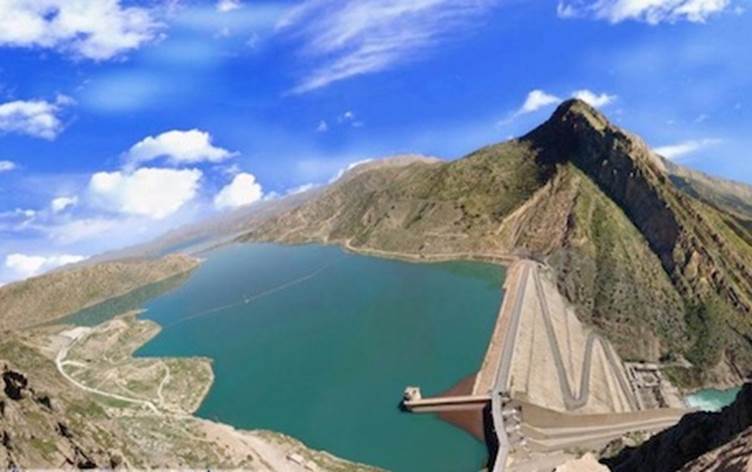SULAIMANI, Kurdistan Region – Iran is completing construction of a major dam on its western border, which the Kurdistan Region next door says will have a huge impact on its own Darbandikhan storage facility and is the beginning of a water war by Iranian authorities.
As the Garan Dam, east of the Iranian city of Mariwan and built on the waters that flow into the Sirwan River in Iraqi Kurdistan, nears completion its dangers to the Kurdistan Region are becoming more evident.
Rahman Khani, director of the Darbandikhan dam, said that Iranian projects on the Sirwan River will have a considerable impact on the amount of water in Darbandikhan, where 70 percent of the flow comes from Iran.
“Several projects are under construction in eastern (Iranian) Kurdistan and some of them are completed. These will have an adverse impact not only on the amount of Darbandikhan water but also on areas further down, in particular the Hamrin Dam,” Khani said.
Kurdish water experts believe that completion of the Iranian dam will have disastrous environmental impacts on the Kurdistan Region.
A close look by Rudaw at Iran’s Garan Dam reveals it will reduce the amount of water flowing into Kurdistan Region. Some areas such as Kusai Hajij will become submerged, and tunnels built by the Iranians will change the flow and keep much of the water in Iran.
Khani said that according to the federal constitution, the Iraqi government has the right to follow up on international waters that are shared among Iraq, Iran, and Turkey.
“As far as we know, the Iraqi government and parliament have made some efforts, but not to the extent of placing pressure on them (Iranian authorities). They have even failed to get necessary information on the projects,” he complained.
Experts say that, compared to last year, the level of Darbandikhan water has decreased by three meters. They say that once Iran completes all of its dam projects in the area, even if Darbandikhan does not dry out it will no longer have the capacity to meet demand from surrounding areas.
“Maybe Iran will not be able to completely block the flow of water into Darbandikhan, but during the water storage season we might face disastrous environmental consequences in the region,” Khani said.
We can’t have an exact assessment of the consequences because we don’t have enough information on the dams that are built in Iran,” he noted.
Akram Mohammed Anwar, director of Kurdistan Region dams, accused Iran of turning a deaf ear to Kurdish concerns.
“Iran does not listen. We have to pursue diplomatic ways to halt Iran’s projects. Two years ago, an Iraqi delegation headed by the Iraqi minister of water resources visited Iran but the visit was not fruitful,” Anwar said.
“Iranians ignore our concerns. Several times, Iraqi delegations have been told by Iranians that Iraq and the Kurdistan Region suffer from lack of water management not lack of water resources,” he complained.



Comments
Rudaw moderates all comments submitted on our website. We welcome comments which are relevant to the article and encourage further discussion about the issues that matter to you. We also welcome constructive criticism about Rudaw.
To be approved for publication, however, your comments must meet our community guidelines.
We will not tolerate the following: profanity, threats, personal attacks, vulgarity, abuse (such as sexism, racism, homophobia or xenophobia), or commercial or personal promotion.
Comments that do not meet our guidelines will be rejected. Comments are not edited – they are either approved or rejected.
Post a comment